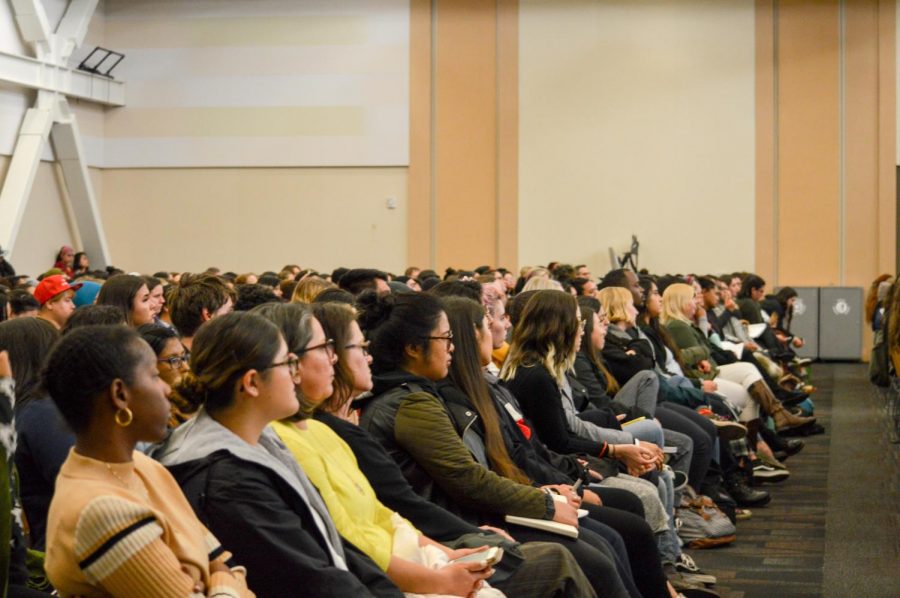Tarana Burke, founder of #MeToo movement visits CSUSM
Founder of the Me Too movement, Tarana Burke speaks to a crowd of students. Students sit gathered in the USU ballroom to listen to Tarana Burke’s speech.
February 20, 2019
About 900 people filled the USU Ballroom as Tarana Burke, founder of the #MeToo movement, spoke to the campus community about the true meaning of the movement since it went viral in October of 2017.
Burke grew up in the Bronx during the 80’s and 90’s and was immersed in black feminist literature from a young age. Since then, Burke has dedicated 25 years of her life to social activism.
She began by telling the story of how the #MeToo movement originated and she said, “The words me too came from her inability to say them.”
At first, the movement was primarily for young black girls. At the time, they were the group most affected by sexual violence.
The movement was created when it became apparent that it “needed a program to tell black girls that were constantly told, you’re not worthy, that you are and why you are,” said Burke.
This was the case until Burke later realized a significant amount of men were also affected.
Burke discussed the importance of community healing, and the notion that community has to do with the laws and policies in place as well as the culture it is built upon.
She discussed that hundreds of lives were touched before October 2017, but people simply didn’t know about it.
Since a website was unaffordable in 2006, Burke created a Myspace page to open up a dialogue about sexual violence and people around the world were thanking them.
She said the meaning of the #MeToo movement, “[ is] not about famous white cisgender women, it’s about the story of trans women, disabled women, missing indigenous women, undocumented women.”
Another misunderstanding of the #MeToo movement was the extent and involvement they needed from men and Burke said that men were part of the work.
The goal of this movement was to embody an empathetic space for people who needed it.
“When you create a loving and safe place for people, they feel vulnerable and will tell you the truth,” said Burke.
Towards the end of the event, Burke told the audience she likes to look up the institution she is going to speak at.
Burke went on to the CSUSM website and found information on what the CSUSM culture looks like.
While Burke said she was pleased with what she read on the university’s website, she challenged students and faculty to research and investigate if the policies and rules enforced on campus align with that vision.
Burke displayed her feelings toward fame and publicity. She said that they are “not enough to celebrate me, if you’re not going to stand up for what I believe in.”
The #MeToo movement was created for survivors and, “[will be] a survivor’s movement regardless of anything,” said Burke.
For more information on events hosted by CHABSS, visit their website at www.csusm.edu/chabss.


